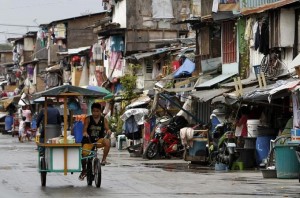(Continued from Part 1.)
The Assumption of Scarcity
The first “false grid” or belief system we may wish to look out for is the assumption of scarcity. Werner points out that we don’t simply think that things are scarce. We come from things being scarce. That is, we think from a condition of scarcity.
He offers the example of love. We may never have had the thought that love is scarce. Nevertheless, we can still come scarcity with respect to love; that is, that love is scarce.
Certainly I’ve said to myself that I only have so much love I can give so I can’t love everybody. I’ve doled out love in the same way I dole out money: with an eye to making it last and having some to give in the future. Or to give some to get some, to make a profit by getting more love than I give, etc.
Time is another example. No one ever has enough time.
Because we think things like love and time are scarce, we act to protect them. We create an economy of things based upon their assumed scarceness and our need to have more of them, protect them, measure them out, make them last, etc.
Thus scarcity is “one component of the structure of beliefs through which we perceive the world.” (1) It’s one of our filters.
Simply getting this matter as intellectual knowledge won’t do very much for us. Even getting a feel for it (experiential knowledge) may not be enough to move us to let it go. We need to get our assumption of scarcity at a direct and immediate, or realized, level. Werner says:
“You need to know it as a result of looking inside yourself and actually seeing how the belief in scarcity shapes your thoughts and actions..
“Pierce into your own system of beliefs and observe that you do believe in scarcity.
“While confronting this belief, get that it is not true that hunger and starvation persist on this planet because food is scarce.”
Just as inequities in distribution are what cause the persistence of hunger, not a lack of food, so with us financial wayshowerrs, the sequestering of money by the elite, and not a lack of money per se, is responsible for the poverty we see around us and our inability to respond to a situation such as the European migration. Millions if not billions of people are not living in poverty because money is scarce.
Our automatic assumption that money is scarce, rather than that it is plentiful but sequestered, prevents us from taking meaningful action to address the situation.
As it happens, global action is being taken to address both the sequestering and the redistribution of wealth. This freeing of funds and their redistribution will fly in the face of our conditioned belief that money is scarce.
Tomorrow I’d like to take a look at a second assumption: The assumption of inevitability.
(Continued in Part 3.)
Footnotes
(1) All quotes are from the Hunger Project, Ending Starvation: Creating an Idea Whose Time Has Come. San Francisco: The Hunger Project, 1977.


